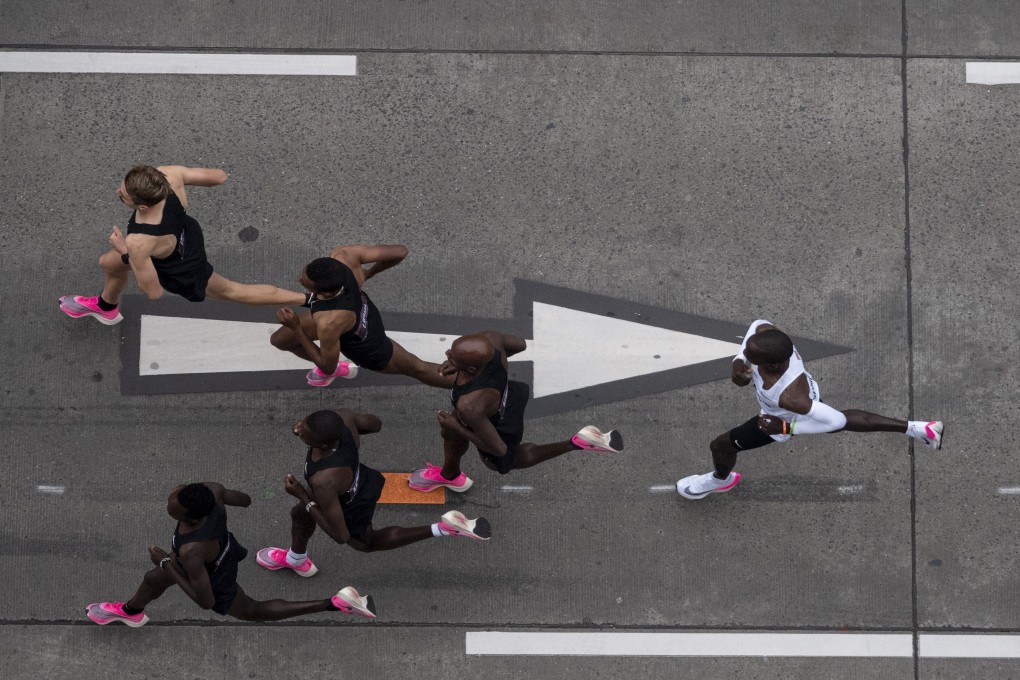Paris Olympics: shoe tech advances bring sub-2 hour marathon ever closer, but will barrier finally be broken in France?
- The winning marathon time at the 1924 Paris Olympics was more than 40 minutes slower than the 2:00:35 run by Kelvin Kiptum in Chicago in 2023
- With shoe technology advancing by the day, an official marathon time of below two hours is seemingly just months away

A century after the 1924 Paris Olympic men’s marathon was won by Finn Albin Stenroos in two hours, 41 minutes and 22 seconds, next year’s Games in the same city could feature the first official sub-two hour time for the distance after 2023 saw more barriers smashed.
Kenya’s double Olympic champion Eliud Kipchoge, who dipped under two hours with his unofficial Ineos challenge run in 2019, had dragged the record down to 2:01.09 in 2022.
But in October this year compatriot Kelvin Kiptum stunned the sport when the 23-year-old took more than half a minute off the great man’s mark to post 2:00.35 in Chicago to kick-start talk of when, rather than if, a legal sub-two would arrive.
That came two weeks after Ethiopia’s Tigst Assefa took more than two minutes off the women’s record with 2:11.53 - a time that would have been the men’s world record until 1967.
Talented and hard working though both champions are, the key component of their incredible times was unquestionably the latest developments in shoe technology that has made comparisons with earlier eras, even last decade, largely meaningless.

Kipchoge’s performances opened the world’s eyes to the condensed foam, carbon-plated super shoes Nike claimed could increase running efficiency - the amount of oxygen consumed per minute - by 4 per cent.